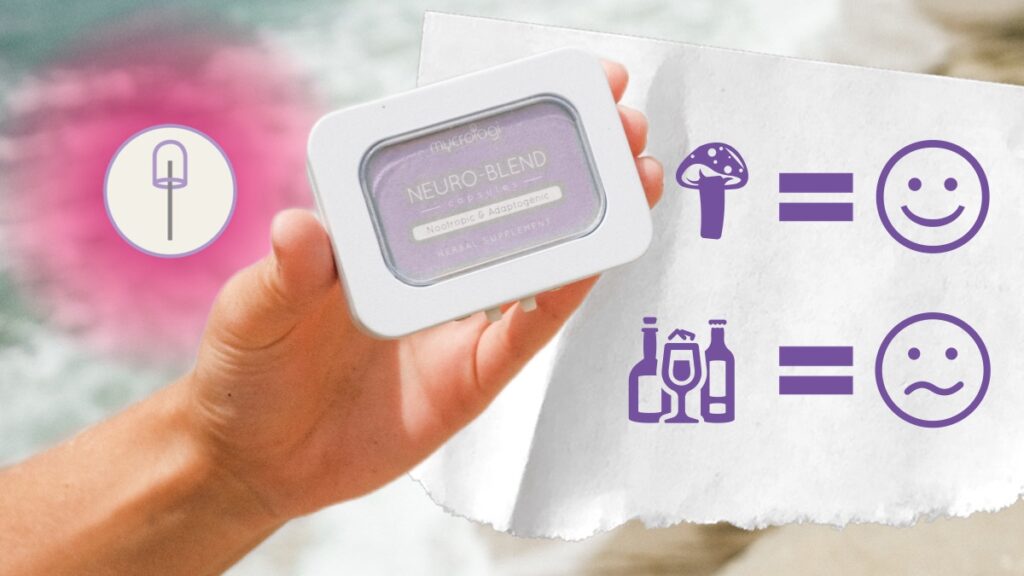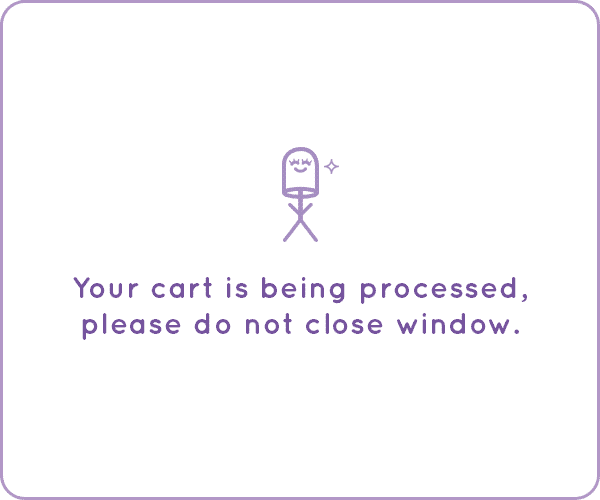No products in the cart.
Health, Uncategorized
Is Alcohol Fuelling your Depression?
No matter the job type, the responsibilities, nor the capacity of your energy threshold, the weekend for many, is characterized by one common desire — a desire for fun!
After a long and trialing week, many of us will crave a chance to let out a deep sigh of relief and simply unwind. While our individual ideas of fun may vary, the common desire for a timely release remains somewhat universal, so how do we obtain it?
For a large portion of society, alcohol is a highly-trusted vice for feeding the mind what it is begging for, whether that be stress-release, excitable socialization, or a quick jolt of euphoria. However, it is the excessive and dependent use of alcohol that has now been associated with a variety of negative effects, including anxiety and depression.
Despite the known risks, many individuals still feel reliant on alcohol in order to retrieve feelings of enjoyment, prompting the need for alternative options that keep in mind the ever-growing mental illness rates that continue to skyrocket in modern society.
- Alcohol & Depression
Research has gathered that alcohol consumption may play a direct role in mental illness, augmenting depression symptoms by affecting the central nervous system, altering brain chemistry, and altering neurotransmitter activity.
Alcohol in itself is considered a depressant, meaning activity in the central nervous system and other parts of the brain are slowed down, resulting in effects such as cognitive impairment as well as lowered inhibitions, and disrupted perceptions.
So if alcohol is classified as a depressant, why does it make me happy? See, alcohol has a knack for tickling our brain’s reward centres – upping our dopamine levels which accounts for feelings of jubilation and pleasure. The release of dopamine and endorphins triggered by alcohol consumption would allude to its prevalence in social settings. This feel-good phenomenon helps explain why alcohol is so good at breaking down social barriers and enhancing our social skills, by providing bursts of feel-good hormones that help us feel confident and comfortable.
With that in mind, there’s no question that alcohol is a highly-addictive substance that provides positive feelings at ample speed. Because of this, dependency on alcohol can be a difficult challenge to face, with many individuals still unbeknownst to the fact that there may be a problem at hand.
The widespread normalization of alcohol consumption makes it a challenging dependency to acknowledge and/or address, understanding that alcohol has become a common staple in many popular social settings today. With that being understood, it is up to personal responsibility to monitor our relationship with alcohol, which may be prompting questions such as: “does the idea of going out sober discourage me?” Or “Do I often continue to drink after I’ve reached my limit?”
This does not mean that enjoying a drink or two is a means for intervention, though, if you are someone who struggles with mental illness, it might be beneficial to gain a further understanding as to how the mechanisms of alcohol may be negatively affecting your current quality of life.
- Neurotransmitter Imbalance and the HPA Axis
As briefly mentioned, alcohol makes quite the impact on the nature of our neurotransmitters. Neurotransmitters are essentially crucial chemical messengers that our bodies need to function. There are well-over 100 known neurotransmitters in the human nervous system, though the most commonly addressed ones are serotonin, dopamine, GABA, and norepinephrine.
Alcohol is known to affect several neurotransmitters in the brain, which can quickly result in a disruptive imbalance depending on the amount consumed, the frequency of consumption, and other individual differences.
The sedative and relaxation effects of alcohol is thanks to its impact on the GABA neurotransmitter, which is responsible for lowering neuronal excitability. This would directly contribute to alcohol’s depressant effects also, including impaired motor skills, confusion, and cognitive declination. Though the enhanced effects of GABA allow for feelings of tranquility, it is a short-term effect that dissipates as the alcohol wears off.
Alcohol’s pleasurable effects are largely attributed to its impact on neurotransmitters, specifically serotonin and dopamine, which play a significant role in its addictive properties. When alcohol is consumed, it directly stimulates the release of dopamine in the brain’s reward pathway, creating feelings of pleasure that reinforce the desire to continue drinking. Mood altering effects can occur as a result of serotonin release also, which accounts for similar effects like happiness and sense of well-being. Serotonin alterations are often grounds for dangerous territory, though, as chronic consumption of alcohol has been associated with decreased serotonin function, which can contribute to the exacerbation of depressive symptoms.
Moving over toward the Hypothalamus, is our main stress response system, otherwise known as the HPA axis. This important system regulates our body’s response to stress, helping us address and adapt to stressful situations effectively. When chronic alcohol use gets involved, the HPA axis can become dysregulated, leading to an increased level of stress hormones. Among these stress hormones is cortisol, which research has shown impose a variety of serious health risks, including anxiety and depression.
- The Psilocybin Effect
Having gained insights into the impact of alcohol on mental health, surely it’s not so easy to consume that information and simply cut out alcohol for good. However, if you are motivated to make a change upon learning about the potential mental effects, we may be able to provide some valuable insights if you are considering a substitution that prioritizes the well-being of your mind.
Psilocybin, the entheogenic ingredient in magic mushrooms, is being analyzed attentively as being a remedy in the treatment of alcohol abuse disorder. A captivating study published in JAMA Psychiatry in 2018, found that participants showed an 83% reduction in heavy drinking as an outcome of psilocybin-assisted therapy. The study also found that the effects of psilocybin-assisted therapy persisted for a minimum of 9 months upon initial treatment – a staggering result when considering alcohol use disorders are notoriously challenging to treat long-term.
Researchers at NYU noted that 8 months after the first psilocybin dose, nearly half of the 93 participants who received psilocybin-treatment chose to quit drinking altogether. Participants of the NYU-led study who underwent supervised entheogenic experiences described that their attitude towards alcohol was repositioned significantly, displaying positive changes in both quality of life and overall well being.
Moreover, psilocybin may also be a viable alternative to alcohol, in the sense of its ability to enhance social fluidity and boost mood. Though the mechanisms of action are different, psilocybin affects the serotonin receptors also, allowing similar feelings of euphoria and pleasure to occur.
The contrasting effects between psilocybin and alcohol in regarding serotonin and dopamine may be attributed to their unique pharmacological properties, including the specific receptors they interact with. Psilocybin’s stimulation of serotonin receptors promotes positive mood and well-being, while alcohol’s impact on dopamine and serotonin is more complex, and can significantly increase the risk of dependency and addiction, unlike psilocybin.
To be more specific, alcohol primarily affects GABA and glutamate receptors, in addition to serotonin. Psilocybin on the other hand, knows its primary mechanism of action is through its interaction with serotonin receptors. By stimulating serotonin 5-HT2A receptors, psilocybin ensues a cascade of effects that go beyond temporary serotonin release, including an increased connectivity in brain networks, altered thought patterns, and enhanced empathetic responses.
- Mindful Choices
The development of research regarding nature-derived alternatives for alcohol abuse disorders is highly encouraging, and is something we hope to see propel forward in coming years.
Alcohol serves not only as a social lubricant but is also used frequently as a coping mechanism for individuals facing various life stressors. Using alcohol as a means to combat stress, sadness, anxiety, and pain, reinforces its reliance even further, making the choice to quit drinking all the more difficult to make.
If you experience exacerbated symptoms of depression and/or anxiety especially after drinking, it is likely your brain’s crucial functions signaling the start or progression of imbalance or dysregulation. Opposed to pressuring yourself immensely by stopping cold-turkey or skipping out on social events, there may be some integration methods worth trying if you are seeking to improve your mental health and also begin forming more mindful drinking habits.
- Try to Avoid Drinking when Under Stress
Naturally easier said than done, an effective approach to building a healthier relationship with alcohol is by denying it at times when you feel most drawn to it. Establishing new coping mechanisms for when we feel a moment of stress coming on, will help in the process of moderation drinking. Slowly familiarizing yourself with activities such as meditation, journaling, knitting, walking, etc. are mindful practices that are proven to mitigate stress, and may become easier to commit to overtime as you integrate them into your daily life. By developing effective stress management techniques and engaging in mindful activities before consuming alcohol, you may find that the desire to surpass a healthy limit of drinking becomes less pronounced as stress is minimized.
- Build a Supportive Environment
As human beings, we all require social interaction to keep our heads and our hearts afloat. Sometimes, when an individual is making a conscious effort to cut back on drinking, they may remove themselves from social situations entirely as a way to avoid temptation. Because of this, building a support circle of friends who enjoy engaging in non-alcohol based activities can be beneficial for developing healthier habits, without feeling a need to isolate yourself from enjoyable times.
- Journal your Intake
If you don’t feel equipped to stop drinking entirely, there is a great abundance of power in both monitoring your habits and becoming mindful of your intake. While it may initially seem trivial, setting a personal goal and utilizing a journal or smartphone app to record your alcohol intake can significantly inforce self-awareness. This practice not only promotes general accountability, but also helps identify personal triggers that may be contributing to excessive consumption.
- Seek Professional Help
There lies such a great deal of strength in reaching out for help, and should be made a priority if you suspect an alcohol dependency and/or battle with mental health in your life. Therapists, counselors, and addiction specialists will be able to offer individualized guidance and support to help you in your specific circumstances, and will also be able to assess the severity of your alcohol dependency which may offer the crucial insight necessary to safely begin a journey of healing.
- Closure
In conclusion, building a healthier relationship with alcohol requires self-reflection, responsibility, and a commitment to making mental well-being a main priority. By exploring alternatives such as psilocybin and adopting mindful habits, there is great promise in the creation of a well-balanced, and fulfilling lifestyle.
Remember, reaching out for professional help is a sign of great strength, and can provide the necessary support to overcome alcohol dependency and improve overall mental health. Choose the path that nourishes your mind and leads to a brighter future.
Sources:
https://www.ncbi.nlm.nih.gov/pmc/articles/PMC4065474/
https://www.addictioncenter.com/alcohol/is-alcohol-a-depressant/
https://www.ncbi.nlm.nih.gov/pmc/articles/PMC5657304/
https://jamanetwork.com/journals/jamapsychiatry/fullarticle/2795625


